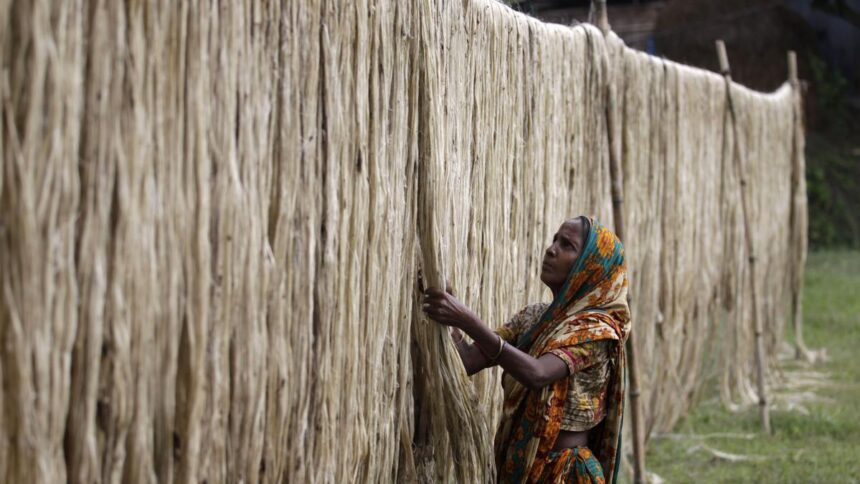Jute Price Surge Leads to Stockholding Regulations
In response to record-high raw jute prices, the Office of Jute Commissioner has mandated restrictions on the maximum stock that traders, balers, and jute mills can maintain. The directive follows reports of jute prices exceeding ₹9,000 per quintal, with mills finding it challenging to procure the fibre due to low supply levels.
The order stipulates that balers are not permitted to hold more than 2,000 quintals of raw jute at any time. Additional restrictions for stockists limit their holdings to a maximum of 300 quintals of raw jute. Jute mills and production units are also required to restrict their stocks to no more than 45 days’ worth of consumption based on current production rates.
Jute Commissioner Moloy Chandan Chakrabortty stated in the order issued on September 24, “I further direct you to sell the quantity of raw jute if it exceeds the allowed amount for your category within 15 days from the date of this order, with physical delivery to the consignee by October 20, 2025. A compliance report detailing the sale and delivery of excess raw jute must be submitted along with supporting documentation.”
Chakrabortty emphasized that the order takes effect immediately and will remain in place until further notice, with the right to modify it reserved.
Industry insiders report that jute mills typically begin the critical September–October festival packaging season with around 10 lakh bales of stock. However, this year, they are starting with historically low inventories. Many mills have been forced to purchase jute at premium prices to maintain operations.
The current spike in raw jute prices is attributed to increased demand and speculation, coinciding with India’s recent ban on imports of jute products and ropes from Bangladesh. A notification from the Directorate General of Foreign Trade (DGFT) issued in August specified that imports of jute fabrics, twine, ropes, and bags are now restricted to entry through the Nhava Sheva Seaport in Maharashtra.
This regulatory move is aimed at ensuring quality control and protecting the domestic jute industry. The banned imports include both bleached and unbleached woven jute fabrics, twine, cordage, and various jute sacks and bags, with a prohibition on land port entry for these products from Bangladesh.
Sanjay Kajaria, former Chairman of the Indian Jute Mills Association, remarked, “For the past two years, farmers have sold raw jute below the Minimum Support Price (MSP), with the Jute Corporation of India (JCI) intervening only slightly and selling all procured stock directly to mills under the Jute Textiles Control Order (JTCO). No buffer stock was created, leaving the market vulnerable as supplies tightened this year.”
Kajaria added that the situation has been exacerbated by import restrictions on Bangladeshi raw jute through land ports—a geopolitical decision that has restricted access to high-quality fibre essential for value-added products. With exports declining and Bangladesh securing its position in global markets, Indian mills currently confront rising input costs and diminishing competitiveness internationally.
Published on September 26, 2025










